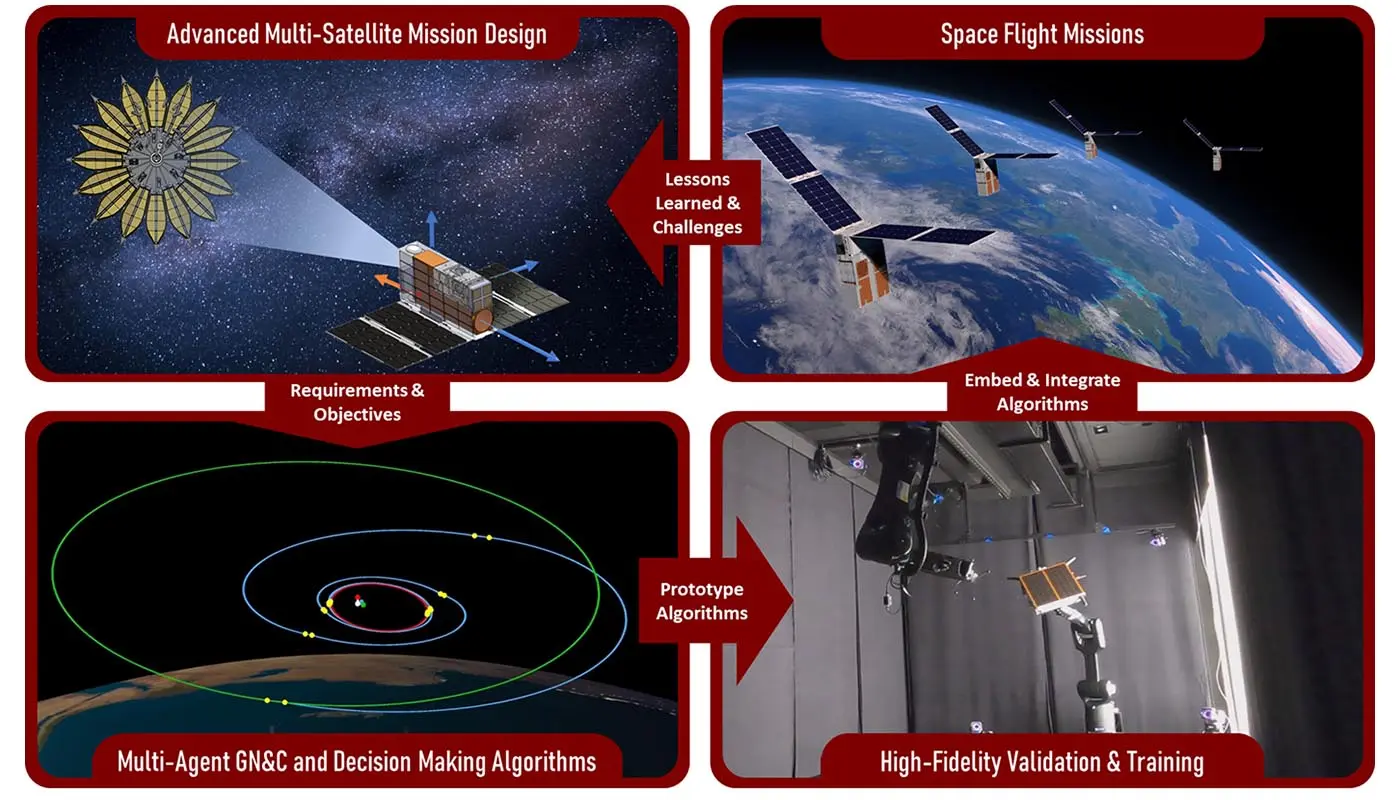AUTONOMOUS MINIATURIZED DISTRIBUTED SPACE SYSTEMS

Seminar December 15, 2023, 11:00-12:15 - Classroom LM.3, Politecnico di Milano, Campus Bovisa, Via La Masa 34, Milano
Two key trends are revolutionizing the way humans conduct spaceflight, namely, the miniaturization of satellites (e.g., micro- and nano-satellites) and the distribution of payload tasks among multiple coordinated units (e.g., formation-flying, on-orbit servicing, fractionation, swarms).
The combination of these approaches promises breakthroughs in space science (e.g., imaging of earth-like planets, characterization of gravitational waves), remote sensing (e.g., synthetic aperture radar interferometry, aeronomy, gravimetry), and space exploration (e.g., lifetime extension, assembly of structures, space debris removal).
Irrespective of the specific application, future miniature distributed space missions require a high level of autonomy to maintain and reconfigure the relative motion of the participating vehicles in safety and within the prescribed accuracy and range of operations.
Especially on small spacecraft, these requirements are hard to meet due to the limited resources, and the chief goal of current research and development is to pave the way for the autonomous Guidance, Navigation, & Control (GNC) of multiple "self-driving nanosatellites”.
This presentation addresses the new miniature distributed space missions under development at the Stanford's Space Rendezvous laboratory and the related advances in multi-satellite GNC.
Speaker:
Prof. Simone D’Amico (Stanford University)
Simone D'Amicois Associate Professor of Aeronautics and Astronautics (AA), W.M. Keck Faculty Scholar in the School of Engineering, and Professor of Geophysics (by Courtesy).
He is the Founding Director of the Space Rendezvous Laboratory and Director of the AA Undergraduate Program. He received the B.S. and M.S. degrees from Politecnico di Milano (2003) and the Ph.D. degree from Delft University of Technology (2010).
Before Stanford, Dr. D’Amico was research scientist and team leader at the German Aerospace Center (DLR) for 11 years. There he gave key contributions to formation-flying and proximity operations missions such as GRACE (NASA/DLR), PRISMA (OHB/DLR/CNES/DTU), TanDEM-X (DLR), BIROS (DLR) and PROBA-3 (ESA).
His research aims at enabling future miniature distributed space systems for unprecedented remote sensing, space and planetary science, exploration and spaceflight sustainability. To this end he performs fundamental and applied research at the intersection of advanced astrodynamics, spacecraft Guidance, Navigation and Control (GNC), autonomy, decision making and space system engineering.
11.12.2023